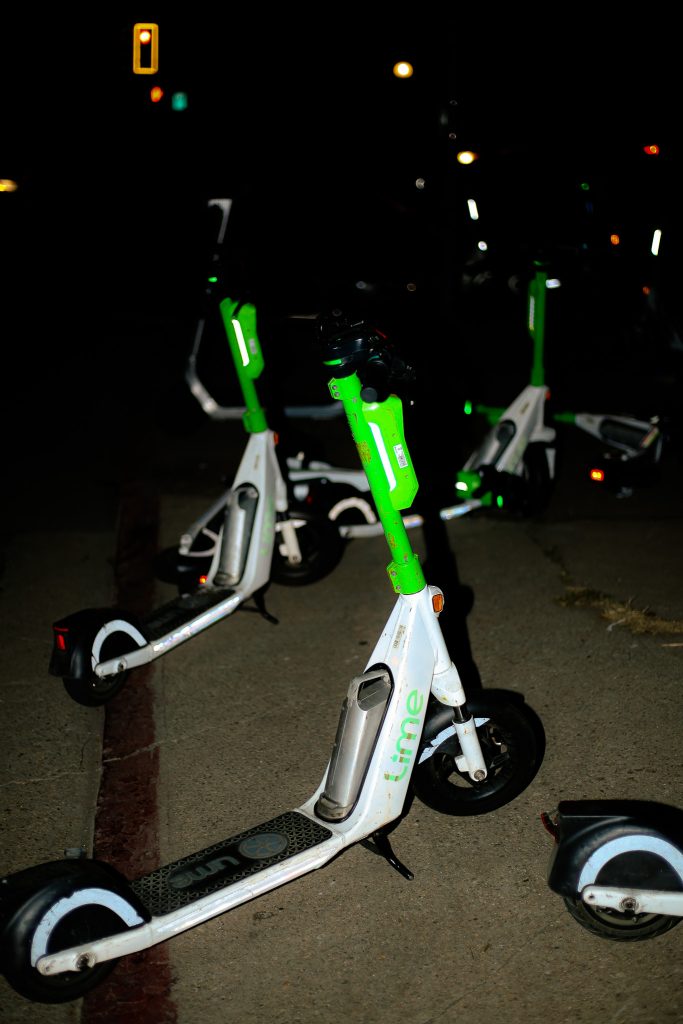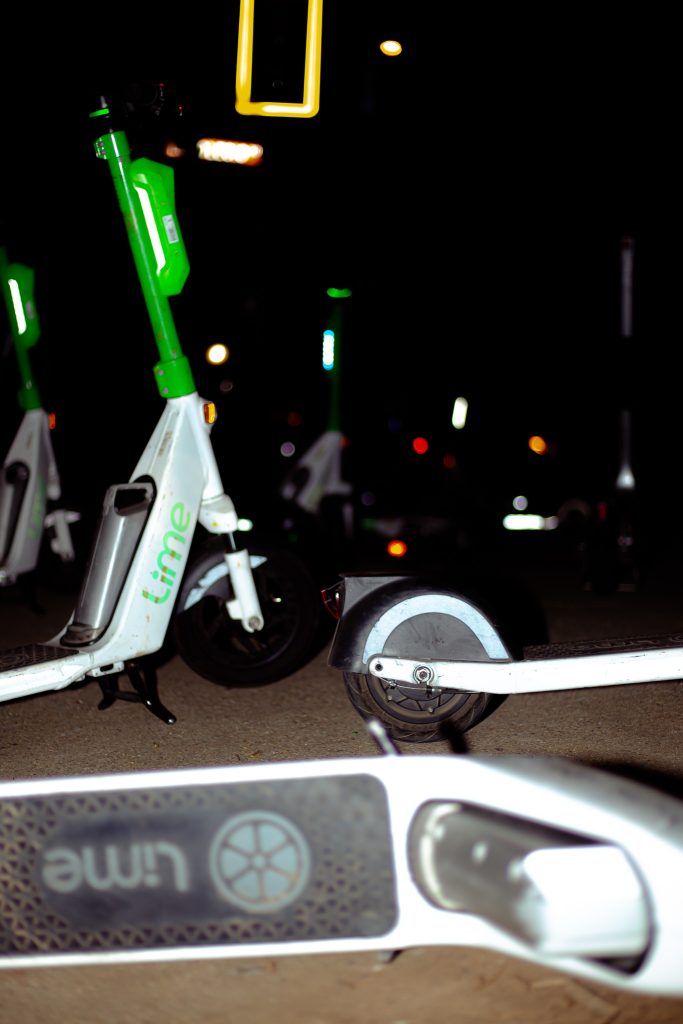Izzy Santiago
Staff Writer
As freshmen going into college, we are taught to never walk home alone, and that absolutely anything else is safer. But what if what disguises itself as a better option is actually even more dangerous?
On Sept. 27, 2018, electric scooters called “Birds” were dumped in Isla Vista without any warning, instruction, or safety training. Since then, hospitals have been filled with Bird-related injuries, yet they still have not been removed from Isla Vista (I.V.). While the scooters are already banned on campus, our safety should also exist beyond the boundaries of just UC Santa Barbara (UCSB) property.
Birds are incredibly harmful to those operating the scooters for an abundance of reasons. To start, their accessibility misleads students who are unprepared to be operating such a vehicle. Deceived by the familiarity of a scooter, it is hard for students to believe that an electric one could be so threatening. Students and I.V. goers are drawn to these cool new “toys” as they first arrive at I.V., but fail to recognize that without any proper training or education, they are not equipped with the right skills to wield dangerously high speeds, inefficient brakes, or faulty hardware. The inability of the brakes to match the high speeds of the scooters leads to constant collisions, especially in the form of rear-ending cars, or even cars colliding with other Birds unexpectedly whizzing by.
Furthermore, Birds rely on user reports to determine if the scooters are broken or malfunctioning. This leads to a large margin for error because students will often shy away from reporting damages out of fear they will be charged, especially if they were under the influence while riding the scooter. This means riders will be unaware that they are even operating a faulty scooter until it’s too late.
Finally, there is no way to guarantee that a Bird or other electrical scooter rider is wearing a helmet, or that the rider even has a license to drive a motorized vehicle in the first place. These scooters are constantly endangering students and I.V. community members, driving them into very traumatic experiences, especially early on in the school year.

One such UCSB student, second-year Ava Sutherland, had a very traumatic experience early on in her freshman year. When they wanted to leave a party, Ava and her roommate first tried to call an Uber, but there were none in the surrounding area. Next, she tried Lyft, but the prices were simply too expensive. Thus, as she was told to never walk home at night, especially to her far-away dorm in the Santa Catalina residence hall, Ava turned to a nearby Bird. After just a few minutes on the scooter, Ava ran into a bump in the road and went flying off, causing her to hit her head and lose consciousness.
Luckily, a passerby found Ava and her roommate. He picked the girls up and drove them home, explaining along the way that he regrettably went through a similar experience on a Bird his freshman year. Ava gained consciousness as they got home, so she went to sleep, unaware of how dangerous and extensive the injuries from a Bird can really be.
The next morning when she woke up, Ava had short-term memory loss. She went to the hospital, and the doctor concluded that she had a severe concussion, a cheekbone fracture, and critical nerve damage. At the hospital, the doctor told Ava that hers is not a rare case — he had already seen similar injuries caused by Birds three times this week. It was Wednesday.
After this incident, Ava had to go to a concussion specialist for a month and a half, consistently working on her motor and memory skills. Ava was forced to miss over two weeks of school, throwing her into constant anxiety and panic attacks. Ava’s story is not one of few. Following her accident, I.V. community members overwhelmed her with stories of their similar experiences, proving these disasters are more common than not. Ava now serves as a center of support for other victims of Birds, her phone frequently filled with new incidents.

With already considerably lawless traffic, especially with the recent decriminalization of jaywalking, Birds also place I.V. drivers, bikers, skateboarders, and pedestrians in harm’s way. Birds are also littered all over the streets of I.V., as they are carelessly thrown on sidewalks, in nearby shrubbery, and left on people’s private property. Since they are banned on UCSB’s campus, Birds are frequently left in piles along the outskirts, constantly blocking driveways and bike paths, leading to even more stress on I.V. community members.
Birds pose a threat to the entire I.V. community, and without either their removal or serious regulation, whether it comes from the police, UCSB, or Bird as a company, students will only continue to end up in hospitals, or worse. With that, it is time to clip Bird’s wings.











